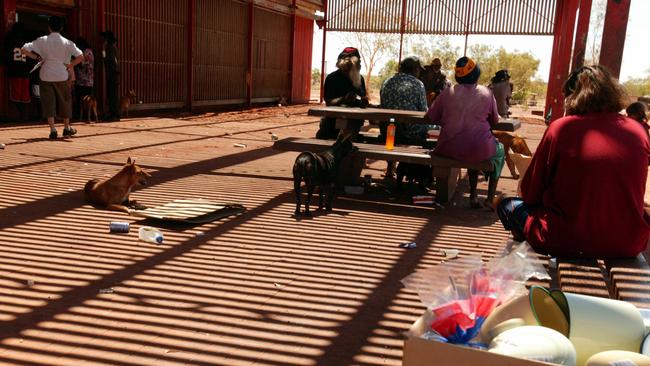Trauma, poverty shaped indigenous youth suicide tragedies in Kimberley
A devastating coronial report reveals intergenerational trauma and poverty shaped worsening suicide rates of Aboriginal children.

West Australian coroner Ros Fogliani has handed down findings in an expansive inquest into indigenous youth suicide in the Kimberley region, finding that the lives of the 13 deceased Aboriginal children and young people she examined in lengthy hearings last year were profoundly shaped by crushing intergenerational trauma and poverty.
Ms Fogliani noted that most of the children and young people whose deaths she examined had no contact with mental health services and most had not been diagnosed with a mental illness. In several cases, family members knew something was not right but they did not address it or did not know how to. Ms Fogliani said this raised the need for education in communities so people can help each other.
Six of Ms Fogliani’s 42 recommendations were about the scourge of fetal alcohol spectrum disorder, the lifelong brain damage that happens in the womb when a pregnant woman drinks. None of the deceased were diagnosed but several were likely to have had it.
Ms Fogliani said the impact of the FASD on the behaviour of the children and young people who took their own lives “cannot be underestimated”.
“Abundant evidence” of alcohol’s impact
The inquest heard it is a disability that can inhibit a person’s ability to regulate their emotions and they are more likely to act in an impulsive manner.
Ms Fogliani’s report finds “abundant evidence” of the impact of alcohol on the lives of the children and young people who took their own lives and she writes favourably about alcohol restrictions.
The children and young people whose lives and deaths were examined at the inquest were aged between 10 and 24 when they suicided between 2012 and 2015.
Eight were male and five were female.
Ongoing sexual abuse
In six of the cases, there was evidence the deceased had been sexually abused as a child.
A seven-year-old boy was left with a relative in the remote community of Balgo, not his home community, even after he revealed to a visiting child protection worker that older boys had been touching him inappropriately.
Three months later he disclosed to a child protection officer that he had since been anally penetrated by those boys who were aged between 10 and 14, the inquest heard.
Two of the children who took their own lives were sisters who died three years apart. One was 13 when she suicided in 2013 and the other, who was seven when her big sister died, took her own life in 2016 aged 10.
The inquest heard most or all of the 13 children and young people had things in common including health problems as they grew up, particularly a diagnosis of failing to thrive.
“Worst case” of failure to thrive
Philip Urquhart, counsel assisting coroner Ros Fogliani, said one boy almost certainly had fetal alcohol spectrum disorder and was the worst case of failure to thrive that one Kimberley doctor had ever seen. He was found in a park as a baby while his mother was intoxicated and unconscious nearby.
Many of the children came from homes prone to alcohol abuse and domestic violence, as children they moved frequently between households of various family members and guardians with varying degrees of success. Most had poor attendance records at school and, consequently, below average academic results.
Ms Fogliani’s report also noted that in nine out of the 13 cases, levels of alcohol abuse and domestic violence in the child’s home were so high the child was placed with a relative.
But the situation was not adequately monitored and in some cases the children remained at risk of harm.
Seven of the children were in homes with levels of domestic violence she described as chronic. Three went on as young adults to have relationships of their own tainted by domestic violence.
Lifeline 13 11 14, beyondblue 1300 22 4636


